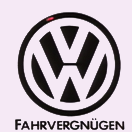Will Team Biden Weaponize Workers’ Pensions?
Big Labor abuse of worker pension and benefit funds as a means of advancing union bosses’ self-aggrandizing policy objectives is a familiar phenomenon.
 In the 1990s, Volkswagen (VW) ran an advertising campaign with Fahrvergnügen, a mysterious German word that seemed to have no equivalent in the English language. Maybe, Detlef Wetzel, Germany’s IG Metall Union Chairman whose union sits on Volkswagen AG’s (VLKAY) supervisory board has provided an illustration of Fahrvergnügen. Wetzel equivocated employee freedom of association and the lack of compulsory unionism in the Right to Work South with the totalitarian country of North Korea. He might consider that Tennesseans probably buy more VW cars than all of North Korea, yet there state is vilified by German Union Boss.
In the 1990s, Volkswagen (VW) ran an advertising campaign with Fahrvergnügen, a mysterious German word that seemed to have no equivalent in the English language. Maybe, Detlef Wetzel, Germany’s IG Metall Union Chairman whose union sits on Volkswagen AG’s (VLKAY) supervisory board has provided an illustration of Fahrvergnügen. Wetzel equivocated employee freedom of association and the lack of compulsory unionism in the Right to Work South with the totalitarian country of North Korea. He might consider that Tennesseans probably buy more VW cars than all of North Korea, yet there state is vilified by German Union Boss.
According to the Wall Street Journal, UAW Union President Bob King has been seeking Wetzel’s “German union’s help to organize the U.S. plants of Volkswagen and Mercedes.” The Wall Street Journal also reports that UAW’s ally IG Metall union is threatening “to block a new crossover SUV to be built in North America.” Perhaps Fahrvergnügen simply means collusion between two international unions bosses with loyalties only to each other.
Without a secret ballot vote, Bob King and the German unions are trying to squeeze Tennessee VW employees into the UAW union, which recently increased its UAW dues by 25%.
From the Wall Street Journal’s Holman Jenkins:
North Korea? That’s the analogy Germany’s top labor leader recently applied to the American South because, in the American South, nonunion auto plants are permitted to exist.
It would be interesting in an appalling sort of way to plumb Herr Wetzel’s reasoning about when employment of nonunion workers makes a country North Korea. After all, 82% of German workers aren’t unionized either. But no doubt his epithet only applies to countries that compete with IG Metall for jobs.
This meshes with the agenda of United Auto Workers chief Bob King, who has sought the German union’s help to organize the U.S. plants of Volkswagen and Mercedes. What happened to Mr. King’s pitch of just a couple of years ago, that the UAW’s new mission was to make auto makers more productive and profitable? Nowhere is it written the union couldn’t be an asset to an employer, but never in evidence was a strategy to turn Mr. King’s nicey-nice sentiment into action.
His union not only makes common cause with a German union whose aim is to reduce the competitiveness of U.S. plants. He lately proposed to boost his union’s strike fund with higher dues in order, as he put it, to avoid “confrontation” with the Big Three. In fact, the union seeks a confrontation: Its mission in next year’s contract talks is to revoke the “entry-level” wage established in 2007 to help Detroit match costs with its foreign competitors.
A question the union gauges only in its inner sanctum is whether, so soon after the bailouts, politicians are ready to indulge a more militant UAW. Doubtful. Democrats in Washington may be attached to the idea that the decline in unionization and rise in inequality are the same thing, mostly as an excuse for doing the bidding of organized labor, a major funder of the party. But politics does not trump reality out in the economy.
This month Seattle-area Democrats were quick to throw organized labor over the side to save a large Boeing investment in their area.

Big Labor abuse of worker pension and benefit funds as a means of advancing union bosses’ self-aggrandizing policy objectives is a familiar phenomenon.

What impact does handing a union monopoly power to deal with your employer on matters concerning your pay, benefits, and work rules have on your pay?

Wherever Big Labor wields the power to collect forced union dues, union bosses funnel a large share of the confiscated money into efforts to elect and reelect business-bashing politicians. Employment growth tends to lag as a consequence.